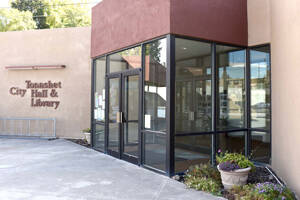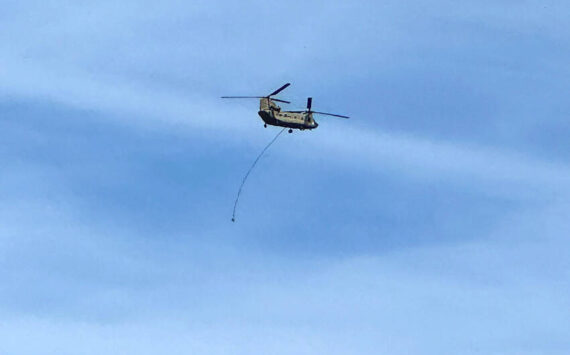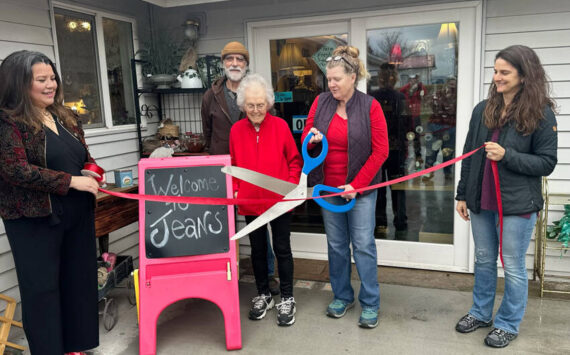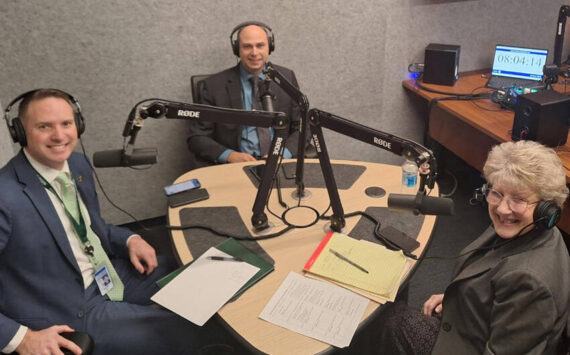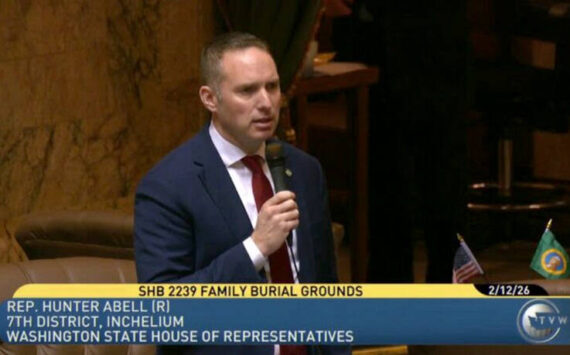TONASKET — The Tonasket City Council met Wednesday, Nov. 12, taking action on several key items including the adoption of the 2026 North Central Washington Narcotics Task Force Agreement, approval of a revised one-year funding commitment of $25,000 for the Task Force, and the passage of Ordinance 859-C establishing the city’s 2026 property tax levy.
The council discussed at great length Resolution 2025-13, which initially proposed a three-year, $25,000 annual contribution to the North Central Washington Narcotics Task Force (NCWNTF). The resolution would have committed the city to a total of $75,000 across three fiscal years, beginning in 2026.
However, council members expressed concerns about entering a multi-year funding obligation ahead of the final adoption of the 2026 budget and without knowing long-term changes in police coverage, enforcement patterns, and future eligibility for federal Byrne JAG replacement funding. After discussion, the council did not pass Resolution 2025-13.
Instead, a new motion was introduced and approved, authorizing a single-year contribution of $25,000 for 2026 only. This changes the proposed multi-year funding pledge to a one-year allocation for the upcoming cycle.
Mayor ProTem Alisa Weddle said the revised motion allows Tonasket to continue supporting the regional task force while preserving future budget flexibility.
Council members noted that the Task Force is facing a regional funding shortfall in 2026 due to the loss of federal Justice Assistance Grant (JAG) money, and that cities across Okanogan County have been asked to increase their participation fees for the coming year. JAG refers to the use of funding from the Edward Byrne Memorial Justice Assistance Grant program to support federal, state and local task forces. The JAG program, administered by the Bureau of Justice Assistance, provides grants to help fund various criminal justice initiatives, including multi-jurisdictional task forces that combat issues like drug and human trafficking.
The NCWNTF provides drug-enforcement collaboration between federal, state and local law enforcement agencies, including undercover operations, intelligence gathering, and large-scale drug trafficking investigations. According to the participation-fee documents included in the council packet, Tonasket’s 2026 fee was calculated based on population and the Task Force’s updated operating budget.
Weddle noted the members of the council felt it was a good idea to go with the one-year cycle in order to get detailed reports, and feedback to make a decision on whether to up the money the following year.
A letter included in the packet from the Task Force Office Administrator stated that Tonasket’s 2026 participation fee totals $5,765.14, with the city’s supplemental contribution—outlined in the newly approved council motion—used to offset the countywide loss of federal funding.
Following the funding motion, council members voted to approve the 2026 North Central Washington Narcotics Task Force Operational Agreement, officially authorizing Tonasket’s participation for the upcoming year. The agreement outlines the city’s responsibilities, the structure of the Task Force Board, investigative priorities and the continuation of multi-agency law enforcement cooperation.
Council members emphasized that the agreement ensures Tonasket maintains access to drug-interdiction resources and investigative support that the city could not independently maintain.
The council also passed Ordinance 859-C, setting the amount to be raised by ad valorem taxes in 2026 for both the Current Expense Fund and the City Street Fund. The ordinance includes the city’s allowable one percent levy increase and incorporates the collection of banked capacity, which staff noted was necessary to maintain ongoing public-safety and infrastructure funding.
City Clerk-Treasurer Alice Attwood’s memo, included in the packet, explained that if the one percent Ad Valorem increase was approved, total property-tax collections for 2026 would be $168,940.40, with more than half directed to the City Street Fund. Staff recommended using banked capacity to ensure the city could continue to fund law enforcement, streets, emergency services and other essential operations.
The adoption of Ordinance 859-C finalizes the city’s property-tax revenue plan for the upcoming fiscal year and supports the broader 2026 budget that remains under review until final adoption.
Department head reports were given at this time. Mayor, council, and committee reports were also given.
Mayor ProTem Alisa Weddle opened up the discussion regarding the city’s current law enforcement contract options with Okanogan County Sheriff’s Office by first going over a timeline of events.
“I want to go backwards in time a minute, just to make sure we all understand why we are having this conversation,” said Weddle.
“In 2019, Tonasket disbanded the police department, 2019-2023, we contracted with Okanogan County Sheriff’s Office. In 2023, we renegotiated that contract and signed a three-year contract for 2023 to 2026. Within all of those pieces, our council has had many conversations about different ideas of law enforcement coverage,” said Weddle.
She said the council has constantly landed on what they feel is the most financially, fiscally responsible thing to do right now and that is to “contract.”
According to Weddle, in March of 2024, Okanogan County let the City of Tonasket know they were no longer able to fulfill the contract.
“At that point, we stopped paying the contract and halted all services.” She said as of Nov. 2024 all of the city’s bills regarding the law enforcement contract with the county were finalized.
“In March of 2025, the sheriff’s department came to us and asked us if we could contract,” said Weddle, “We were surprised.”
Since March, Weddle said, there have been many discussions with the Okanogan County Sheriff’s Office regarding a law enforcement contract.
Weddle recommended setting a public meeting with Okanogan County Sheriff Paul Budrow to discuss law enforcement coverage and ensure the community has clarity regarding the 2026 contract and services. Council member Jeff McMillan proposed the meeting be held on Feb. 3.
The council also reviewed several portions of the draft 2026 budget, including city hall requests, Public Works needs, and workshop items discussed earlier in the year. These included: Payroll program updates, new signs and lighting for city hall, parking lot resurfacing and building maintenance, Public Works staffing, equipment replacements, winter material costs and training, water and sewer infrastructure needs, cemetery property discussions, funding for the NCW Task Force and law-enforcement contract.
The next Tonasket City Council meeting will be held Tuesday, Nov. 25, at 6 p.m.
